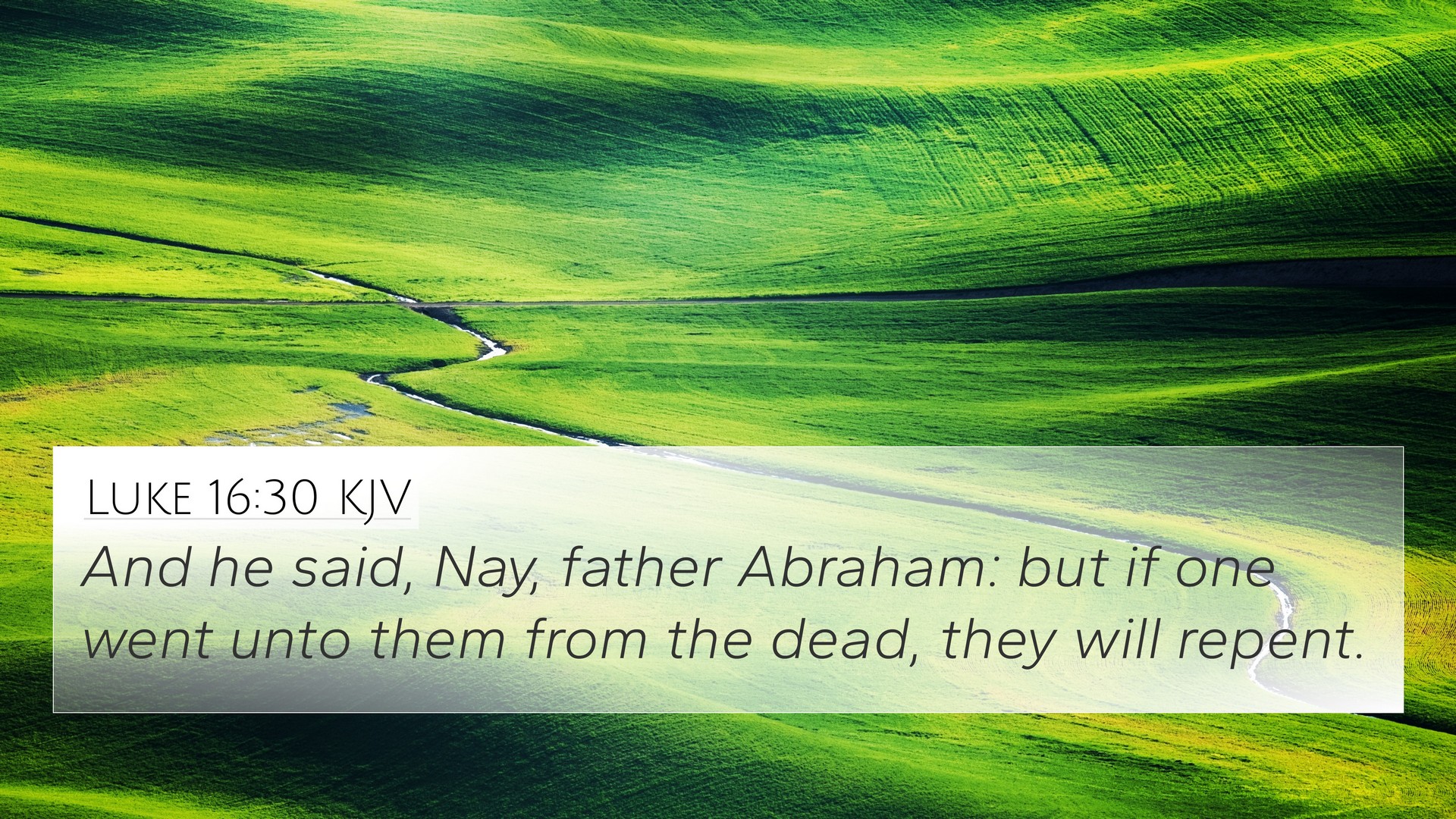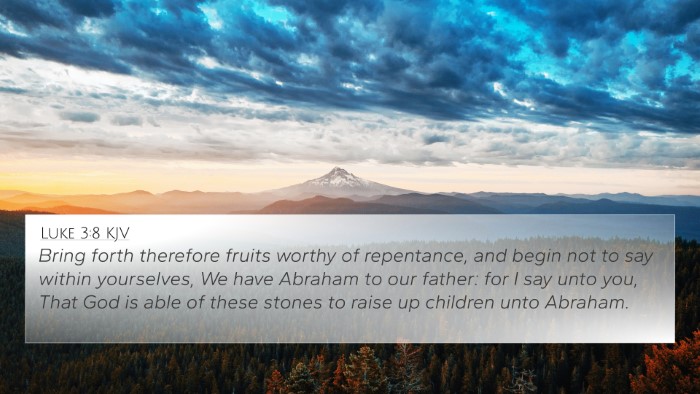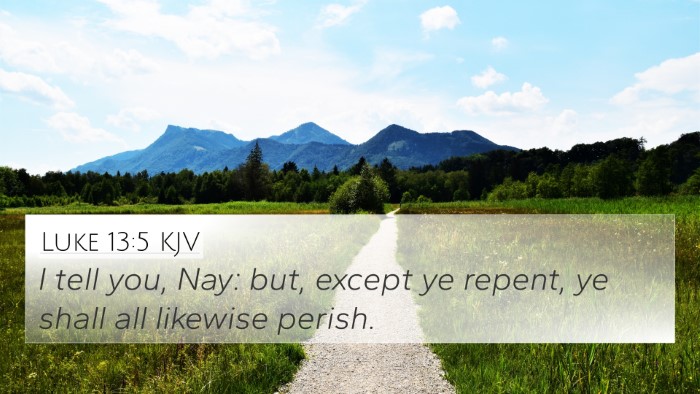Understanding Luke 16:30
Luke 16:30 states: "And he said, Nay, father Abraham; but if one went unto them from the dead, they will repent." This verse is part of the parable of the rich man and Lazarus, which highlights themes of repentance, the afterlife, and the consequences of one's earthly life.
Context of the Verse
The context surrounding Luke 16:30 is critical for understanding its meaning. The rich man, who finds himself in torment after death, pleads for Abraham to send someone back from the dead to warn his brothers of their fate. His desperate desire for his family to repent illustrates the depth of his regret and the urgency he feels regarding spiritual matters.
Commentary Insights
The insights from public domain commentaries such as those by Matthew Henry, Albert Barnes, and Adam Clarke provide a deeper understanding:
- Matthew Henry: Highlights the futility of signs and wonders in convincing the unrepentant. He emphasizes that the Scriptures are sufficient to lead one to repentance without needing miraculous signs.
- Albert Barnes: Points out that the rich man's request reflects a misunderstanding of the nature of repentance and belief. 'If they hear not Moses and the prophets,' he notes, 'neither will they be persuaded, though one rose from the dead.'
- Adam Clarke: Explores the idea that true repentance comes from a change of heart, not merely fear of punishment. He comments on the rich man’s belief that a resurrection would be a powerful instrument for change, dismissing the significant role of previous teachings.
Thematic Connections
This verse can be cross-referenced with several key Bible themes and scriptures:
- Hebrews 9:27: "And as it is appointed unto men once to die, but after this the judgment." This illustrates the certainty of judgment after death, a theme resurfacing throughout this parable.
- John 11:43-44: The account of Lazarus being raised from the dead showcases that even a miraculous resurrection may not guarantee belief.
- Matthew 12:39: Jesus speaks against the demand for a sign, asserting that no sign will be given but that of the prophet Jonah, reinforcing the idea that faith comes from listening to God’s word.
- 2 Corinthians 5:10: "For we must all appear before the judgment seat of Christ..." highlights the inevitability of facing the consequences of one's actions after death.
- Romans 10:17: "So then faith cometh by hearing, and hearing by the word of God." This emphasizes that the hearing of the Word is the essential means of coming to faith.
- Luke 16:31: This verse reinforces the point made in Luke 16:30, where Abraham directly states that if they do not listen to the prophets, they will not believe regardless of any miracle.
- Isaiah 66:4: "I also will choose their delusions..." which connects to the idea of people's hearts being hardened against truth despite witnessing signs.
Bible Verse Cross-References
Luke 16:30 interacts significantly with other scriptures. Here are key cross-references to consider:
- John 5:39 - The importance of searching the Scriptures for eternal life.
- James 1:22 - "But be ye doers of the word, and not hearers only..." a call to action and genuine belief.
- Acts 16:30-31 - The question of what one must do to be saved, emphasizing belief in Jesus Christ as key to salvation.
- Matthew 7:13-14 - The narrow gate represents the difficult path of true repentance and belief.
- Proverbs 29:1 - A warning against hardening one's heart against correction and truth.
Conclusion
Luke 16:30 serves as a vital reminder about the significance of listening to divine truth and the grave consequences of ignoring it. The insights gained from cross-referencing this verse with other Scriptures enrich one’s understanding of the God’s message regarding repentance and belief.







